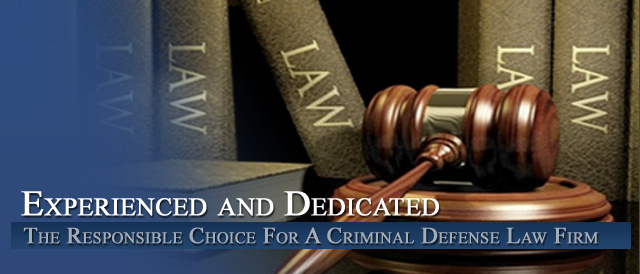




FAQ: The Felony, or Misdemeanor Complaint or Traffic Ticket Has The Wrong Name, Wrong Date of Birth and Other Errors – I Want My Case Dismissed – What Now?
By Denver Colorado Criminal Lawyer – For Criminal Defense Issues – H. Michael Steinberg
Many believe that if a ticket, misdemeanor charge or felony complaint has technical errors in it – the case must be dismissed. I cannot tell you how many times I inform people of Rule 7 of the Colorado Rules of Criminal Procedure. This is the rule that permits the prosecution to amend (change) the information to correct the defect.
In disbelief these clients always start out questioning my sanity or competency – Here is the law:
When an information (a ticket, a felony complaint or other charging document) is insufficient on its face, however, the prosecution may move, pursuant to Colorado Rule of Criminal Procedure Rule. 7(e), to amend the information. “Crim. P. 7(e)” provides:
The court may permit an information to be amended as to form or substance at any time prior to trial; the court may permit it to be amended as to form at any time before the verdict or finding if no additional or different offense is charged and if substantial rights of the defendant are not prejudiced.
The Colorado Court have held that Colorado Rule of Criminal Procedure 7(e) is to be construed liberally to avoid the dismissal of cases for technical irregularities in an information that can be cured through amendment.
In one important Colorado case – People v. Bowen, 658 P.2d 269 (Colo.1983), the Colorado Supreme Court held that when an information is insufficient under Bustamante, a court may still have jurisdiction to proceed by allowing the prosecution to amend the faulty information. The Bowen court held that a trial court may permit the amendment of an information to allege that an offense occurred within the statutory period of limitations.
Bowen involved the amendment of an information prior to trial, whereas in some cases a trial court is permitted amendment after the close of the evidence. BUT under the standards of Crim. P. 7(e), an amendment is permissible only if it was one of form, not substance, and only if it did not charge a different offense and did not prejudice a substantial right of the defendant.
The purposes served by a criminal information are to advise the defendant of the nature of the charges, to enable the defendant to prepare a defense, and to protect the defendant from further prosecution for the same offense.
In determining whether an amendment is one of form or substance, the court must evaluate the count as alleged in the information, as well as the circumstances surrounding the case.
In one case – Higgins v. People, 868 P.2d 371 (Colo.1994), the prosecution amended an original felony complaint to name three additional victims after the statute of limitations period for charging the offense had run out. The supreme court held that, in determining whether an amendment to a charging document filed after the statute of limitations period was valid, a trial court must distinguish between amendments that charge a new or additional offense and amendments that merely correct a defect or insufficiency in the original document.
The Higgins court indicated that if the amendment merely corrects a defect or insufficiency, the defendant suffers no prejudice, and thus, the amendment will relate back to the date of the original filing and will not be barred by the statute of limitations. However, if the amendment charges a new or additional crime, the amended complaint is barred by the statute of limitations.
In Higgins, the court held that amending the criminal complaint did not charge the defendant with any new or additional crimes, but rather simply remedied an insufficient list of victims in the original complaint, and was therefore proper.
Summary
If an amendment to the information does not change the nature of the offense or otherwise prejudice the defendant in the presentation of his defense it does not constitute a change of substance, but merely remedied an insufficiency in the original document, and thus constituted a change of form. See W. LaFave & J. Israel, Criminal Procedure § 19.2(g) (1984)
Other Articles of Interest:
- 019. COLORADO CRIMINAL CODE – OFFENSES INVOLVING FRAUD -COMPUTER CRIMES
- If You Are Stopped for a Traffic Matter
- Stopped for a Traffic Matter
- Colorado Juvenile Expungements Sealing Of Juvenile Records
- Colorado Criminal Law – Attacking a Colorado Criminal Arrest Warrant – A “Franks” Challenge and Hearing To Dismiss The Charges












